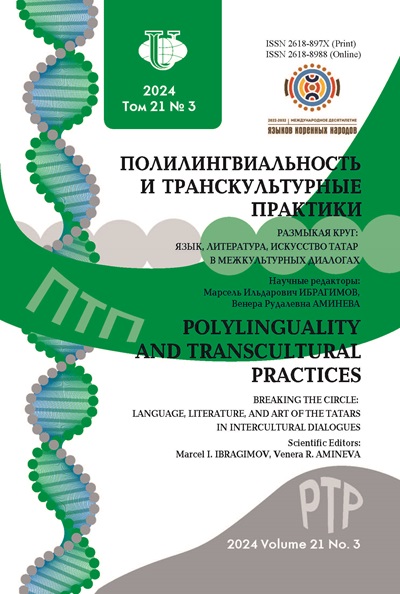Issue
Title
Authors
|
Oshepkova E.S., Kartushina N.A., Shatskaya A.N. |
|
Lebedeva I.L. |
|
Yalalov F.G. |
|
Marusenko M.A. |
|
Sycheva A.V. |
|
Sinyachkin V.P., Dvoryashina V.S. |
|
Almadakova N.D. |
|
Nikolaenko S.V. |
|
Valeeva N.G., Mekeko N.M. |
|
Aubekerova G.A. |
|
Arefiev A.L. |
|
Bejenari O.A. |
|
Telezhko I.V. |
|
Gatinskaya N.V. |
|
Molchanovskiy V.V. |
|
Yerkova D.N., Baghana J. |
|
Romanova N.N., Amelina I.O. |
|
Zakoyan L.M. |
|
Karapetyan N.G., Pugachev I.A. |
|
Novikova M.L. |
|
Brawn N.A. |
|
Moldakhmetova G.Z. |
|
Balykhina T.M. |
|
Gartsov A.D. |
|
Klobukova L.P., Vinogradova E.N., Chekalina V.L. |
|
Balykhina Т.М. |
|
Bykova I.A., Notina E.A. |
|
Baranova I.I. |
|
Bulavina M.A. |
|
Saranina I.I. |
|
Valiulina V.R. |
|
Milkheeva N.F. |
|
Nurtdinova G.M., Tahtarova S.S., Khabibullina E.K. |
|
Qu Y. |
|
Bashieva S.K., Dokhova Z.R., Shogenova M.C. |
|
Ufimtseva N.V. |
|
Bartosh J.V. |
|
Fattakhova A.R. |
|
Lupachyova T.A. |
|
Turinova O.O. |
|
Rychkova L.V. |
|
Nikitsenka T.V. |
|
Cherepanov I.Y. |
|
Valuitseva I.I., Khukhuni G.T. |
|
Shontukova I.V. |
|
Sinyachkin V.P. |
|
Maslova O.V. |
|
Kuvshinova E.A. |
|
Lukyanova K.A. |
|
Shatalova L.S., Shcherbakova O.M. |
|
Beckeeva A.R. |
|
Morozova A.V., Cherkashina T.T. |
|
Guirinskaya L.V. |
|
Gerasimova K.M., Temkina N.E. |
|
Shuntova O.V. |
|
Nevmerzhitskaya E.V. |
|
Mekeko N.M. |
|
Khapilina E.V. |
|
Buglakova L.M. |
|
Azimov E.G. |
|
Novikova N.S., Pugachev I.A. |
|
Rudenko-Morgun O.I., Al-Kaisi A.N. |
|
Shoustikova T.V., Voronkova I.A., Shorkina E.N. |
|
Balykhina T.M., Cherkashina T.T. |
|
Archangelskaya A.L., Kameneva O.V. |
|
Zaytseva N.G. |
|
Bolotina T.V., Danilova O.A. |
|
Suleimenova E.D. |
|
Kulieva S.A. |
|
Vladimirova T.E. |
|
Barov S.A., Yannitsi T. |
|
Biarozka D.V. |
|
Sebryuk A.N. |
|
Orlova E.V. |
|
Elizarova T.S. |
|
Csajbok-Twerefou I., Dzyadyk Y.I. |
|
Bragina M.A. |
|
Bolshakova N.G., Nizkoshapkina O.V. |
|
Karpina E.V. |
|
Ganelina Y.A. |
|
Krivchenkova I.V. |
|
Baghana J., Treschova N.V. |
|
Karapetjan N.G., Chernenko N.M. |
|
Ovtcharenko A.Y. |
|
Baranova N.M. |
|
Naydenova N.S. |
|
Gartsov A.D., Asanova S.A. |
|
Makhankova I.P., Novikova N.S., Serova L.K., Khvorikova E.G. |
|
Mazirka D.A. |
|
Sotnikova O.P., Ustimenko N.M. |
|
Kudoyarova T.V. |
|
Motovilova G.G., Pushkova N.N., Sidelnikova A.V., Shustikova T.V. |
|
Ignatova I.B. |
|
Abbasova A.A. |
|
Gosteva Y.N. |
|
Pomortseva N.V. |
|
Novikova N.S. |











